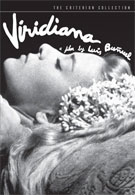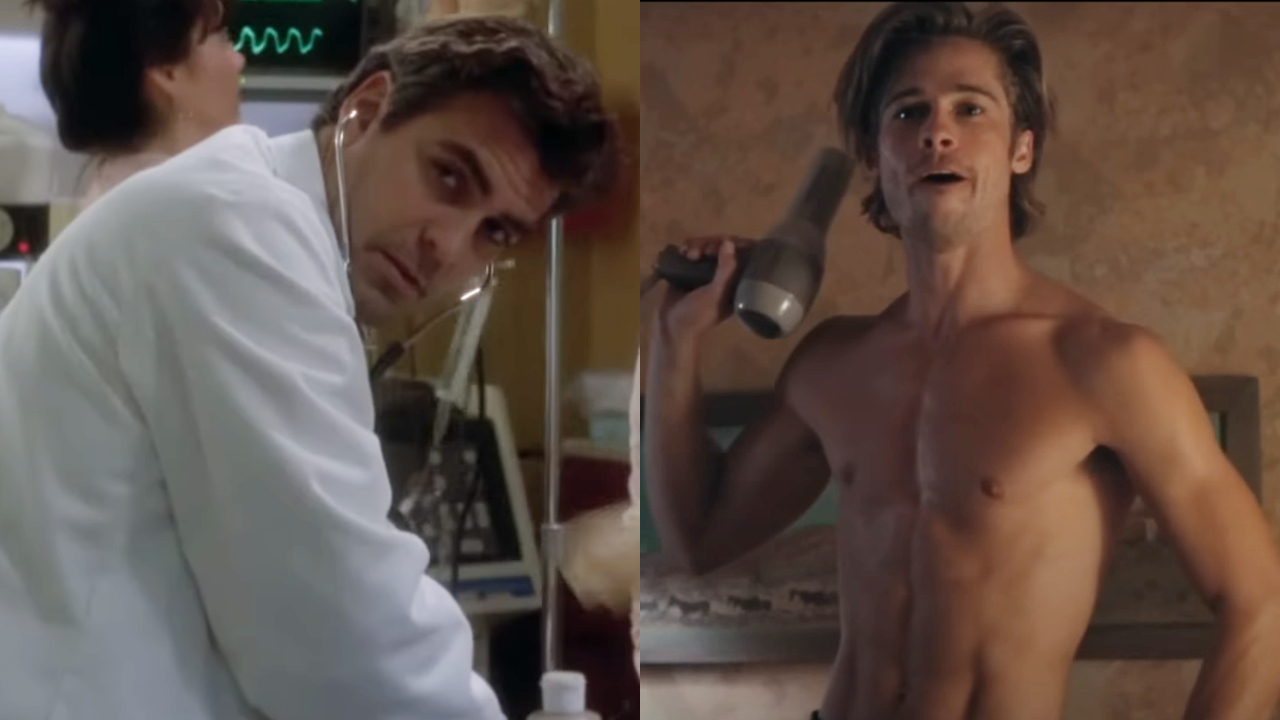While visiting her sick uncle before taking her vows as a nun, Viridiana questions her faith after her uncle commits suicide. Through Viridiana’s empty attempts at redemption, director Luis Buñuel’s biting commentary and impressive visual style makes us question our own quest for redemption in a world that is un-forgiving in Viridiana. The toughest times in our lives tend to do one of two things - strengthen our faith or make us question it. Like most surrealists of the time, director Luis Buñuel sought to not only question the popular faith of Christianity, but show how belief in certain religious ideals is futile. Viridiana is the story of a young woman, Viridiana, whose beliefs are questioned and dashed when she leaves her convent to visit her sick uncle, Don Jamie, who supported her schooling, but never truly cared for her.
Upon her arrival, Viridiana meets her uncle with an honest compassion, but her uncle’s obsession with his dead wife, who resembled Viridiana, clouds his judgment and his actions. He has Viridiana don his wife’s wedding gown, which she does innocently to bring some happiness to a man who she has begun to sympathize with. Don Jamie drugs Viridiana with the intention of taking advantage of her, but his actions are driven by sadness, not malevolence, and he cannot bring himself to do it. A master character artist, Buñuel does an amazing job of painting Don Jamie in a sympathetic light, while showing him committing despicable acts. Frightened by her uncle’s advances, Viridiana leaves, only to be stopped at the train station with news that her uncle has hanged himself. Racked with guilt, Viridiana imposes the responsibility of his death on herself, and she begins to seek atonement for her self-imposed sin.
In hopes of redeeming herself after her uncle’s suicide, she gathers the homeless and afflicted of the neighboring town to stay at her uncle’s estate, now run by Don Jamie’s estranged son Jorge. Viridiana feeds, shelters and provides the homeless with work around the estate, only to have them destroy Viridiana’s family possession the first time she and Jorge leave the house. Each time Viridiana sacrifices herself, whether it is for the happiness of her uncle or by giving the homeless a place to stay and work, her faith is damaged. Not only do the homeless trash the house, but two of the men also attempt to violate Viridiana, but are foiled by Jorge. By the end, Viridiana has been attacked twice due to her self-sacrificing beliefs.
Although Buñuel’s ideas are obviously debatable, he taps into a side of humanity that is not readily discussed. Despite her attempts, Viridiana’s kindness and faith is unable to help the uneducated homeless. They seem to represent human nature in its purest form - violent, destructive and self-centered. Buñuel juxtaposes religious imagery with the homeless’ barbaric actions to suggest that religion is just as foolish as these characters. Unfortunately, the only solution Buñuel offers is to accept the brutality in a more refined manner. Jorge is by no means a saint, but his selfish impulses are balanced with his humanity. He buys a dog from a man who has strapped it to his cart and forces it to run at the pace of the horse and he saves Viridiana from her aggressors. Although he is above cruelty, Jorge seeks the same thing as his uncle and the homeless men - to know Viridiana in the biblical sense.
While the film was banned in Spain and denounced by the Vatican, Buñuel’s visual style is amazing. His use of stark contrast between the darks and lights add to his surrealist ideals. Yet, this surreal feeling never leaves the ground; it is always created out of realistic images, creating a mood that is odd yet attractive. He moves the camera with a strong purpose, always emphasizing the characters’ actions, and the shots are meticulously framed. Even if the film’s themes are disagreeable, the film’s aesthetics alone are enough of a reason to consider Buñuel as a must-see filmmaker. From the title of this review, you know this is a Criterion Collection release; so, you already know what I’m going to say. The 1.66 : 1 widescreen transfer is crisp and clear in most instances, the blacks are rich and the whites are vibrant. However, I say “most” because there are occasions when the frame is a bit jittery and a few scenes are soft and washed out - an example of how bad the source material must have been. Also take note that the 1.66 : 1 transfer is indeed anamorphic, but since widescreen TV's have a ratio of 1.78 : 1, the black bars on the sides maintain the 1.66 : 1 ratio. The audio is presented in Dolby Digital Mono and is pretty standard fair for an older film release from Criterion.
Despite that Viridiana is a “lower tier” Criterion release, meaning that it has a $29.95 price tag as oppose to a $39.95 tag, the special features are engaging and insightful. There is a video interview with Silvia Pinal, who played Viridiana and worked with Buñuel on other films (The Exterminating Angel and Simon of the Desert). The interview is a bit sporadic as Pinal talks about films you probably haven’t seen as they are widely available and people you’ve probably never heard of. The same goes for the excerpts from a 1964 episode of Cinèastes de notre temps (a French T.V. show). However, both shine some interesting light on Buñuel’s career.
The highlight of the special features is the interview with author Richard Porton who discusses Buñuel’s background and puts the film in context of the time that it was released. This short interview provides a better understand of Buñuel’s ideas, and it serves as a great introduction to those new to the director. Also included is the U.S. trailer and a booklet featuring an essay by Michael Wood and interview with Buñuel. With a great film and special features that add to the experience, not to mention the attractive price tag, Viridiana is a solid DVD release and well worth your monthly DVD budget.
Your Daily Blend of Entertainment News

